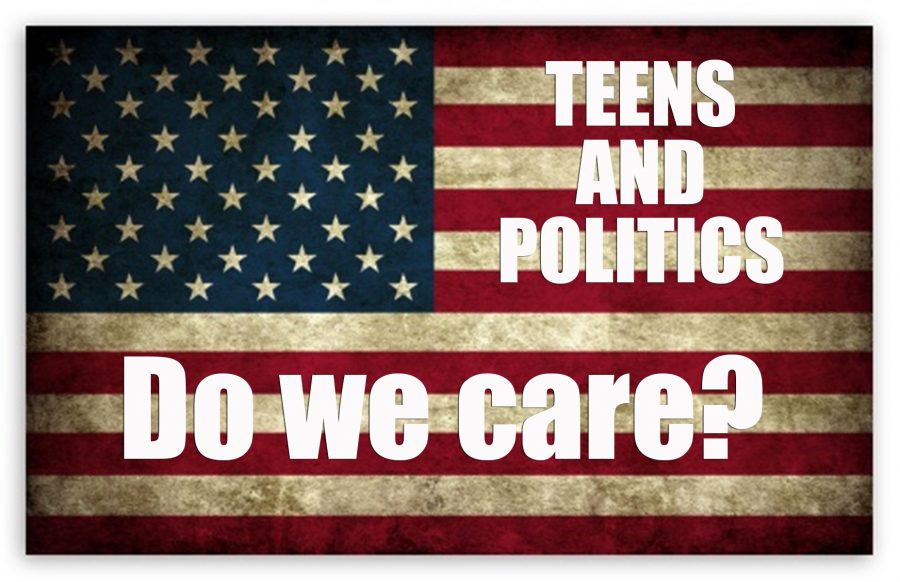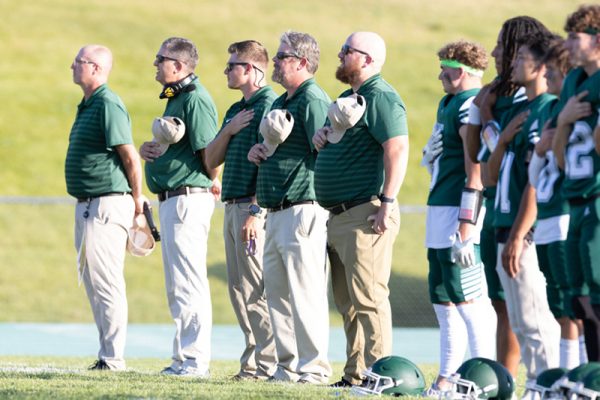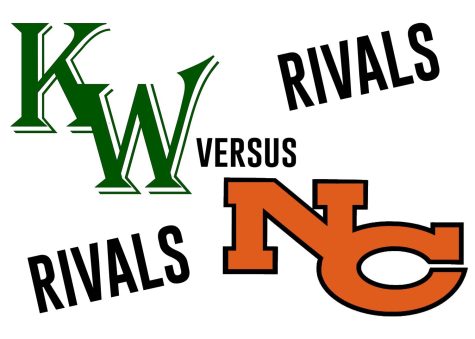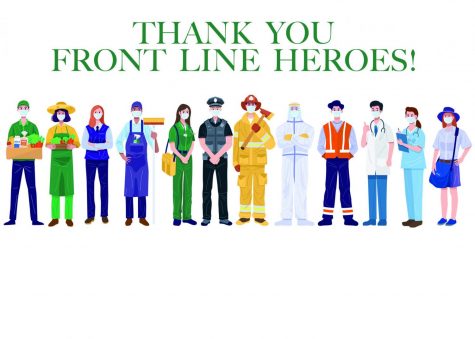Orwell, Groupthink and KW 2016
Hunched over in thought, Jonah Spicher – a junior at Kelly Walsh High School – spends his time contemplating issues which may not concern the average student. While his classmates focus on the latest film or album, Mr. Spicher considers the implications of modern politics.
When asked about his feelings on civic education, he said, “There are so many issues we face, and people just assume ‘oh, hey, I don’t need to vote the “fill in the blank” party will fix it’ and I really think that’s an issue with today’s political culture.”
Politics have become too taboo to discuss around the table in most households. While this is understandable, it has led to negative effects on society. More often than not, a child’s political views will align with one of three major institutions: family, church, or school. Thus, based on their major influence, in Wyoming we have a large concentration of conservative republicans, whereas in states like Maine there is a large concentration of liberal democrats. Inside of state lines, people will often be in agreement with one another, which leads to something that William H. Whyte, Jr. in 1943, and George Orwell in his book 1984 called “groupthink.”
Groupthink (ad populum fallacy) is the conclusion that an individual’s beliefs must be true because their social group shares the same beliefs. This leads to the phenomena of polarization, in which people will float to the extreme their beliefs, refusing to find middle ground.
Take a look at the 2016 presidential election. One candidate advocates reigning in Wall Street, and another advocates building walls. Both candidates do this in response to the belief that the “mess in Washington” needs to be cleaned; however, both candidates approach this issue with radically different ideas, and neither candidate is likely to agree on a middle ground anytime soon. Part of the problem is a lacking of civic education in. In fact The Center for Information & Research on Civic Learning and Engagement (CIRCLE) in 2012 said, “Only eight states administer statewide, standardized tests specifically in civics/American government: California, Indiana, Kansas, Kentucky, Missouri, Ohio, Virginia, and West Virginia. Of those, Ohio and Virginia are the only ones that require students to pass said test in order to graduate from high school.”
In response to such information, a survey was conducted with Students of Kelly Walsh about their opinions of civic education, and here are the results:
- 53% understood the definition of civic education.
- 39% valued civic education at least slightly important or very important.
The polls continued to ask which candidates students supported, where they get their political beliefs, what news sources they watch and/or read, and more. When analyzing the data it is intriguing to note how individuals who place less importance on civic education choose to vote, as compared to people who value that education choose to vote. While no candidate is inherently evil, disagreements between candidates that correlate with disagreements on the value of civic education spark interesting questions on how having said education affects one’s political beliefs. For example:
- 66% of Bernie Sanders supporters viewed civic education as at least slightly important
- 75% of Donald Trump Supporters viewed civic education of neutral or lesser importance
In comparison to issues politics may seem boring to students, the implications of politics are large. In the time it took to create this piece, over 23 people were injured in a bus-bombing in Jerusalem. Nearly 300 have died in an earthquake in Ecuador. Women make 78 cents to a man’s dollar. Racism is rampant in the streets. The rich are getting richer at the expense of the poor. People want to build walls and drop bombs. Why, you might ask? It happens largely because a lack of concern for civic education, which has led to the sort of groupthink and polarization that allows for these things to happen with minimal resistance. Then again, perhaps it doesn’t matter. Perhaps we should all go back to our latest Netflix original and ignore politics. After all, our favorite political parties will fix everything, right?






